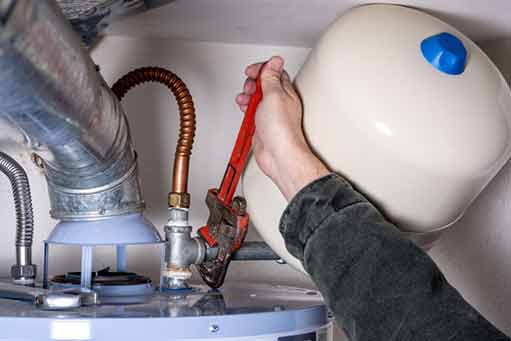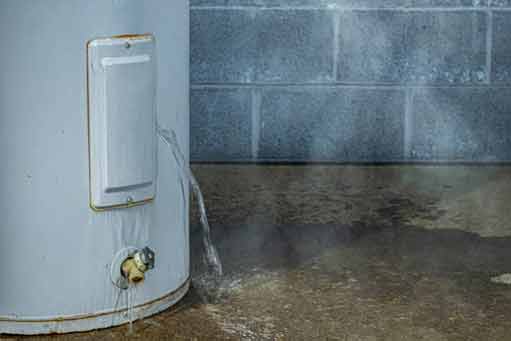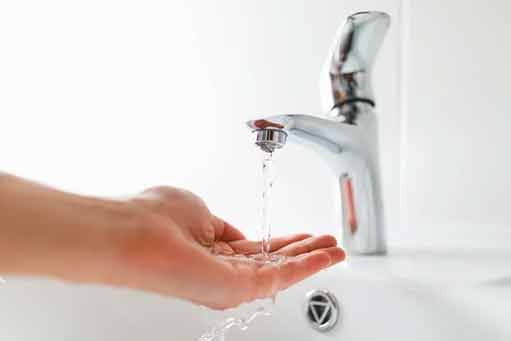
In every household, a water heater plays a crucial role in providing hot water for various needs such as showers, dishwashing, and laundry. However, when our water heater starts to malfunction, it can lead to inconveniences and disrupt our daily routines. Understanding the common problems that may arise with water heaters can help you diagnose the issue and determine the appropriate course of action. In this article, we will explore some of the most frequent issues encountered with water heaters and discuss possible solutions.
Lack of Hot Water
If you find yourself getting only cold water from your water heater, it indicates a problem that needs to be addressed. Several factors can lead to a lack of hot water:
- The pilot light might be extinguished: Check if the pilot light is on. If it’s not, relight it following the manufacturer’s instructions.
- A faulty thermocouple: The thermocouple is responsible for sensing if the pilot light is ignited. If it’s defective, it may shut off the gas supply. Consider replacing it.
- A broken heating element or a malfunctioning thermostat: Electric water heaters use heating elements to warm the water. If they are damaged, they need to be replaced. Faulty thermostats can also prevent water from heating properly.
Strange Noises Coming from the Water Heater
If you hear unusual sounds coming from your water heater, it’s an indication that something is amiss:
- Sediment buildup: Over time, minerals and sediments can accumulate inside the tank, causing rumbling or popping noises. Flushing the tank periodically can help prevent this issue.
- A loose heating element: If you have an electric water heater, a loose heating element could create a humming or vibrating sound. Tightening or replacing the element may solve the problem.
- A faulty expansion valve: The expansion valve is responsible for controlling the pressure inside the tank. A malfunctioning valve can result in a high-pitched whistling or hissing noise. Replacing the valve may be necessary.

he drain valve at the bottom of the tank is used for emptying or flushing. If it becomes loose or has a faulty seal, it can cause water to leak.
Water Leakage
Water leakage is a common issue in water heaters that requires prompt attention. The causes of leakage can include:
- A faulty temperature and pressure relief valve: If this valve malfunctions, excess pressure can build up inside the tank, leading to leakage. Replacing the valve can resolve the problem.
- A leaking drain valve: The drain valve at the bottom of the tank is used for emptying or flushing. If it becomes loose or has a faulty seal, it can cause water to leak. Tightening or replacing the valve may be necessary.
- A crack or corrosion in the tank: In certain cases, the water heater tank itself may develop a crack or corrosion, resulting in leakage. Unfortunately, in such instances, replacing the entire water heater might be the only solution.
Discolored or Foul-Smelling Water
If you notice that the water coming from your water heater is discolored or has an unpleasant odor, you should address the issue immediately:
- Sediment buildup: A high concentration of minerals and sediment in the water can cause discoloration. Flushing the tank can help resolve this problem.
- Anode rod corrosion: The sacrificial anode rod in the water heater is designed to attract corrosive elements that would otherwise damage the tank. If the rod is fully depleted, the tank can begin to corrode, leading to foul-smelling water. Replacing the anode rod can fix this issue.
- Bacterial growth: Sometimes, certain bacteria can thrive in the warm environment of a water heater, resulting in a musty or rotten egg smell. Flushing the tank with a hydrogen peroxide solution can help eliminate the bacteria.

Accumulated sediment can clog the water lines, affecting the water pressure.
Inadequate Water Pressure
If your water heater isn’t providing sufficient water pressure, consider the following possibilities:
- A restricting valve: Some water heaters have a valve that controls the flow of hot water. If it isn’t fully opened, it can affect the water pressure. Make sure the valve is completely open.
- Sediment buildup: Accumulated sediment can clog the water lines, affecting the water pressure. Flushing the tank may help remove the sediment and improve the pressure.
- A malfunctioning pressure regulator: If your home has a pressure regulator, it could be faulty, leading to low water pressure. Contact a plumber near you to inspect and replace the regulator if necessary.
Conclusion
Water heater problems can cause significant inconvenience, but many issues can be resolved with proper troubleshooting and maintenance. Regularly inspecting your water heater, performing maintenance tasks, such as flushing the tank, and promptly addressing any problems can help ensure the efficient and reliable operation of your water heater. However, if you are uncertain about the cause of the issue or feel uncomfortable performing repairs, it is always advisable to seek professional assistance from a local plumber.